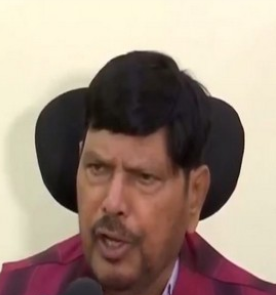Memories galore as Satyajit Ray’s ‘Pather Panchali’ opens G-20 Film Festival
New Delhi, Aug 17 (PTI) Satyajit Ray’s black and white classic “Pather Panchali”, which trained its lens on the simplicity of a rural India gone by, rolled out on a big screen, much to the delight of film aficionados who packed into the hall for the rare experience.
While most youngsters rushed out of the C D Deshmukh auditorium at the India International Centre Wednesday evening when the movie ended, many old-timers hung around the premises to savour the 112 minutes of the master auteur’s 1955 debut work.
Titled “Song of the Little Road” in English, “Pather Panchali” was the opening film of the G20 Film Festival, organised by the India International Centre in collaboration with the G20 Secretariat, Ministry of External Affairs.
Veteran photographer Avinash Pasricha, who photographed Ray on the sets of his only Hindi film “Shatranj Ke Khilari” in Lucknow, remembered the legendary filmmaker on the occasion.
“I’ve known Satyajit Ray myself. I went and photographed him in Calcutta many years ago for a span. And I had heard about this (film)… Indeed, I don’t understand Bengali. Fortunately, it was subtitled in English.
“But this is such a touching film. An unbelievable capture in black and white. It was amazing, the festival really made me see it again in this life. I’m glad they started the film (festival) with this,” Pasricha told PTI here after the screening.
He also recalled photographing Ray on the sets of the 1977 film “Shatranj Ke Khilari”, based on Munshi Premchand’s short story of the same name, starring Amjad Khan and Sanjeev Kumar. The photographer said he “captured” Ray filming a cockfight sequence.
“I have memories of both Mr Ray and his films,” he added.
More than 300 viewers turned up to watch “Pather Panchali” on the big screen last evening. Some had to go back without watching the film as the 230-seater auditorium quickly filled up. Entry to all the screenings is open to all and free, but on a first come, first serve basis.
Friends Teresa and Indu Halder were some of the lucky ones.
Teresa, a former government employee, said she always wanted to see “Pather Panchali” and was happy she got “this golden opportunity” to watch the film during the festival.
“I thought it (the film) would be dragging but it wasn’t. It was very moving and resonates with the position we are in our lives right now. This is the first time I saw the movie. I sort of know about Bengal and these conditions. But, this is the first time I have seen it in the movie per se,” she added.
“Pather Panchali”, Ray’s directorial debut and a classic in not only in India but also in world cinema, depicts the travails of the protagonist Apu and his elder sister Durga as they navigate childhood and poverty in a Bengal village with their parents Harihar and Sarbajaya.
There was collective laughter whenever Indir Thakrun, Harihar’s elderly cousin, would crack her toothless smile; and some sobbing when he returns home to see his house and family in a shambles. The emotions clearly resonating 68 years later. Some viewers, both old and young, quietly wiped a tear rolling down their cheeks.
Halder, a delegate, said she is honoured both as an Indian and a Bengali that this film was chosen to inaugurate the film festival.
“Satyajit Ray was an epic (filmmaker). The way, so many years ago in 1955, he did the photography and technical aspects (of the film). He took quite a chance. I think it was a gamble because he wasn’t sure how it would be taken… the reaction of the others (audience). We are so lucky it was a hit the first time people saw it,” she said.
An adaptation of Bibhutibhushan Bandopadhyay’s book of the same name, “Pather Panchali” established Ray amongst the directing greats in world cinema. He continued the story of Apu in two other films, “Aparajito” (1956) and “Apur Sansar” (1959), which came to be known as the “Apu trilogy” and regarded as an important watch for cinema students.
The G20 Film Festival will present 16 seminal award-winning international feature films which reflect the issues and concerns of each country, engaging with questions of identity, of memories and remembrance, issues of gender and the social polity.
Some of these titles are “We are Still Here” (Australia), “Ana. Untitled” (Brazil), “Aristocrats” (Japan), “Mezquite’s Heart” (Mexico), “Decision to Leave” (South Korea), and “My Night” (France).
Nathalia Syam’s “Footprints On Water”, starring Adil Hussain, will close the festival on September 3.






